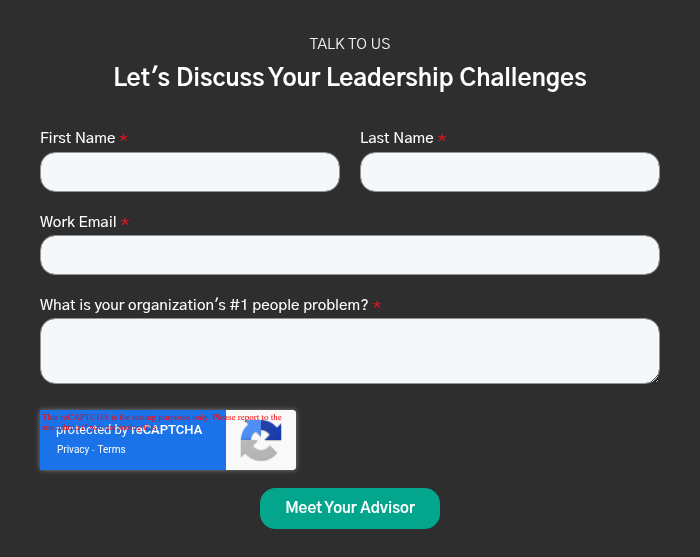
Emotional intelligence (EQ) has become a critical skill for effective leadership and team success. While many leaders possess technical expertise, it’s their ability to understand, manage, and respond to emotions—both their own and others'—that often sets them apart.
Emotional intelligence can be the difference between a thriving team and one struggling with miscommunication and conflict. Often conflicts originate from the disconnect between how one intends to behave and how others perceive the actual behavior.
This blindspot creates a chasm of uncertainty with intent, perception and reality trying to fill the void. Only a 360 can demonstrate alignment and provide opportunities for clarity into the chasm.
Once that clarity is discovered, participants can decide if they want to change or clarify the perceptions.
Here at The Metiss Group, we have witnessed teams who undergo EQ 360 coaching elevate their conflict resolution and problem-solving abilities.
Additionally, It is common for our clients, after implementing our program, The Emotional Intelligence Journey™ to experience a substantial reduction in internal conflicts along with notable improvements in project turnaround times.
This blog will dive into what the EQ 360 assessment is, why it’s important, and how it can help leaders and organizations foster healthier, more productive work environments.
What Is Emotional Intelligence (EQ) and How does the EQ 360 Assessment apply?
Before exploring the EQ360 assessment, it’s essential to understand emotional intelligence itself. Emotional intelligence refers to the capacity to recognize, understand, manage, and influence emotions. These skills not only impact personal success but also significantly influence team dynamics, decision-making, and overall organizational culture.
In "The E.Q. Edge," Stephen J. Stein and Howard E. Book outline five key pillars of EQ: Self-Perception, Self-Expression, Interpersonal, Decision Making, and Stress Management.
The EQ 360 measures these pillars in the following manner:
-
Self-Perception: Measures how you see yourself. How do you accept your strengths and limitations while remaining satisfied and self-secure?
-
Self-Expression: Measures how you express emotions. Do your words and physical expressions convey feelings not harmful to others?
-
Interpersonal: Measures your relationships with others. Are your relationships mutually satisfying? Are you able to build relationships with compassion, trust, and mutual give and take? Are you empathetic? Is your moral compass directing your behavior toward promoting the greater good?
-
Decision Making: Measures your ability to problem solve and make decisions when emotions are involved. How effectively do you use your emotions when solving problems? How apt are you at remaining objective and grounded during the decision-making process? How impulsive are you when making decisions and do emotions drive the decisions?
-
Stress Management: Measures your ability to manage emotions during potentially stressful situations. How do you react to change? How do you cope and respond to mounting pressure? Are you able to remain positive despite setbacks?
It’s clear to see how these pillars are essential for fostering a productive and harmonious work environment. Additionally, one's self-perception of these qualities can only paint part of the picture.
When the perceptions of others are also revealed to the person, a full picture of EQ health is realized.
Why is EQ critical in Leadership?
High Emotional Intelligence significantly impacts team dynamics and collaboration. Research published in the Harvard Business Review indicates teams with high EQ are more innovative and adaptable.
For example, at The Metiss Group, we have seen teams who enroll in The Emotional Intelligence Journey™ are better at conflict resolution and problem-solving. It is not uncommon for our clients, after implementing our program , to experience a substantial reduction in internal conflicts along with notable improvements in project turnaround times.
This is because teams with high EQ demonstrate better collaboration, fewer conflicts, and higher overall productivity compared to teams with low EQ.
Unlike traditional measures of intelligence, such as IQ, which focus on cognitive abilities, EQ emphasizes emotional and social skills.
This distinction is crucial as it underscores the importance of interpersonal dynamics and self-awareness in professional settings.
What Is the EQ 360 Assessment?
The EQ 360 assessment is a multi-rater tool designed to measure emotional intelligence from multiple perspectives.
Unlike traditional self-assessments, where individuals rate themselves on various competencies, the EQ 360 collects feedback from a variety of sources, including supervisors, peers, direct reports, clients, friends and family.
This feedback gives a 360-degree view of how others perceive the individual’s emotional intelligence, providing a more holistic and accurate picture.
The assessment is typically based on the EQ-i 2.0 model, one of the most widely used frameworks for understanding emotional intelligence. It evaluates a broad range of emotional competencies, including self-perception, interpersonal skills, decision-making, stress management, and adaptability.
By comparing the individual’s self-assessment with the feedback from others, the EQ360 identifies both strengths and areas for development.
How the EQ 360 Assessment Works
The EQ 360 process is relatively simple but highly insightful. Here’s a step-by-step overview of how it works:
-
Self-Assessment: The individual first completes a self-assessment, rating themselves on a variety of emotional intelligence competencies.
-
Observer Selection: The individual then selects a group of raters—typically supervisors, peers, direct reports, and possibly clients or other stakeholders—who are invited to provide feedback. This group should be composed of individuals who interact with the leader in different capacities, offering a broad perspective.
-
Observer Feedback: The raters complete the assessment by providing their perceptions of the leader’s emotional intelligence. This feedback is collected anonymously to encourage honesty.
-
Report Generation: Once all feedback is collected, a detailed EQ 360 report is generated. This report highlights the individual’s self-assessment scores alongside the rater feedback, showing where perceptions align or differ.
-
Debrief and Coaching: A trained facilitator or coach will review the results with the individual, helping them interpret the feedback and create a development plan. This step is crucial because the report can reveal blind spots or areas where the leader may not realize they are struggling.
Why the EQ 360 Assessment Matters
The EQ 360 assessment provides significant value by offering a well-rounded and accurate understanding of a leader’s emotional intelligence. While self-awareness is an essential component of emotional intelligence, it’s common for individuals to have blind spots.
These blind spots are areas where a leader may overestimate or underestimate their abilities, creating a gap between how they see themselves and how others see them.
For example, a leader may believe they are highly empathetic, but the feedback from their team might indicate otherwise. Alternatively, a leader may feel they struggle with assertiveness, but their peers might see them as appropriately strong and clear in communication.
The EQ 360 brings these gaps to light and enables leaders to take actionable steps toward growth.
Benefits of the EQ 360
The EQ 360 assessment can have transformative benefits for both leaders and their organizations. Here are some of the key advantages:
-
Enhanced Self-Awareness: One of the most immediate benefits of the EQ 360 is increased self-awareness. By comparing self-perception with external feedback, leaders gain a more accurate understanding of their emotional intelligence.
-
Targeted Development: The assessment helps identify specific areas for improvement. Leaders can use this feedback to create targeted development plans focusing on areas like stress management, empathy, or decision-making.
-
Improved Communication: With better emotional intelligence, leaders are often able to communicate more effectively. The ability to manage emotions, read others' emotional cues, and respond appropriately fosters healthier communication and collaboration.
-
Stronger Team Dynamics: Emotional intelligence directly impacts team dynamics. Leaders with higher EQ can create environments where team members feel heard, valued, and supported. This results in higher engagement, morale, and productivity.
-
Better Decision-Making: The EQ 360 helps leaders understand how their emotions influence their decision-making process. With this insight, they can learn to regulate emotions, think more clearly, and make balanced decisions, especially under pressure.
-
Resilience and Adaptability: Emotional intelligence is closely tied to resilience and adaptability—critical skills in today’s fast-changing world. The EQ 360 assessment helps leaders build the emotional resilience needed to navigate challenges and adapt to change more effectively.
-
Long-Term Growth: Emotional intelligence is not static. The feedback provided by the EQ 360 assessment serves as a foundation for long-term personal and professional growth. Leaders who are committed to improving their EQ can continually refine their leadership style and positively impact their teams and organizations.
The EQ 360 assessment offers a comprehensive and insightful tool for leaders looking to enhance their emotional intelligence.
By gathering feedback from a variety of sources, it provides a well-rounded view of a leader’s emotional competencies and helps identify areas for growth. Emotional intelligence is a critical skill for modern leadership, influencing everything from decision-making to team dynamics.
By investing in tools like the EQ360, leaders can cultivate the emotional skills needed to inspire, lead effectively, and foster a positive organizational culture.

Here at The Metiss Group, our team of behavioral experts harness this nuanced comprehension, to lead leaders towards heightened self-awareness and interpersonal adeptness.
Through customized strategies, deliberate introspection, and pragmatic exercises, leaders embark on a transformative voyage, cultivating the emotional intelligence imperative for navigating the intricacies of contemporary leadership with authenticity and influence.
If you are ready to take the next step and elevate performance and team cohesion, schedule you call with an advisor with the Metiss Group. This 15-minute call is no committment and gives you a chance to see if our services are a good fit. Fill out the form below to get started.

